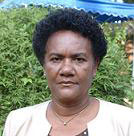

 The reported deaths due leptospirosis is causing a lot of concern. The government and the Ministry of Health have responded by warning the population that we must clean up the environment to discourage rats from the surroundings of our homes. Rats, they say carries the bacteria.
The reported deaths due leptospirosis is causing a lot of concern. The government and the Ministry of Health have responded by warning the population that we must clean up the environment to discourage rats from the surroundings of our homes. Rats, they say carries the bacteria.
Seychelles Nation, the state controlled print media, carried an article in its Island Conservation column early in the week, detailing the history of and when we did know about leptospirosis in Seychelles. It says that ‘although there were probably cases of leptospirosis in the islands from early on, the “non-specific influenza-like symptoms” - fever, headaches, muscle aches, vomiting, conjunctivitis, and weakness – must have been attributed to other diseases.’ In other words, many may have died of this disease in the past for lack of proper diagnosis.
On television, the Ministry of Health has been running an infomercial exhorting people to clean up their immediate home environment and to assist in getting rid of rats. The advert also features a government employed medical practitioner telling us that symptoms of leptospirosis infection includes red eyes and blood in the urine. Another medical practitioner has informed us that, at that point the infection usually kills.
This begs the question, should anyone in Seychelles, a country which claims an advanced health care service, die because of an infection with the leptospirosis bacteria? Our research on the World Wide Web reveals nothing so alarming about the disease.
According to an American made power point presentation on the disease, only 1 in 100 cases are deemed fatal if not treated. Of course, this applies to the
The internet reveals a case study undertaken in
Some cases of leptospirosis resulted in death, and the case-fatality rate among leptospirosis patients was significantly higher than among dengue fever patients. The different case-fatality rates may be related, however, to the intensive training in dengue case management that occurred during this epidemic period, or to the lack of specific antimicrobial therapy for unrecognized cases of leptospirosis. Our findings underscore the need for greater awareness of leptospirosis in the Indian subcontinent, more data on its incidence in
Why should we have greater fatality than in the
The answers to all the above questions should come from the Ministry of Health. This is government accountability in a democratic society.